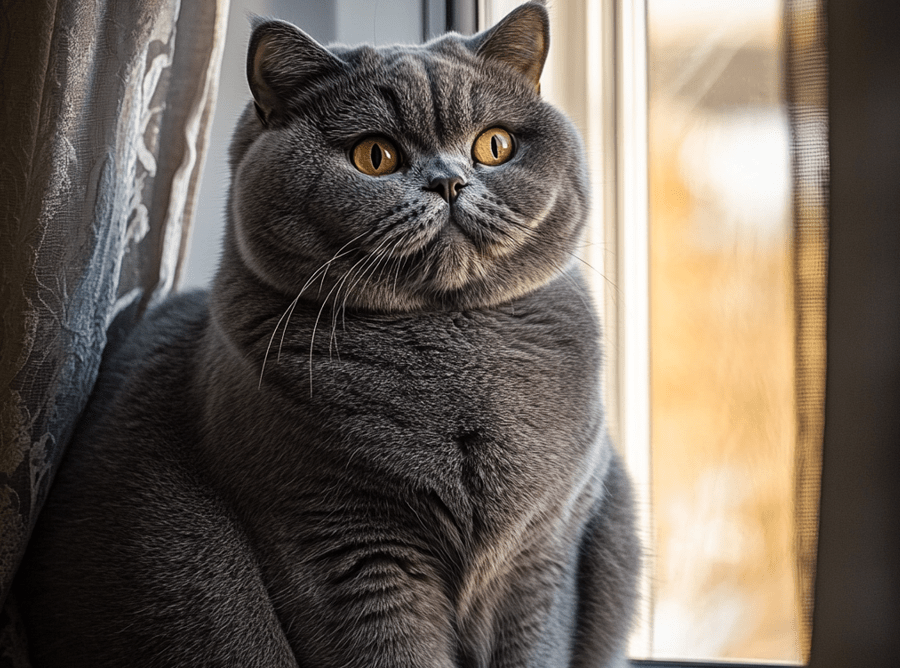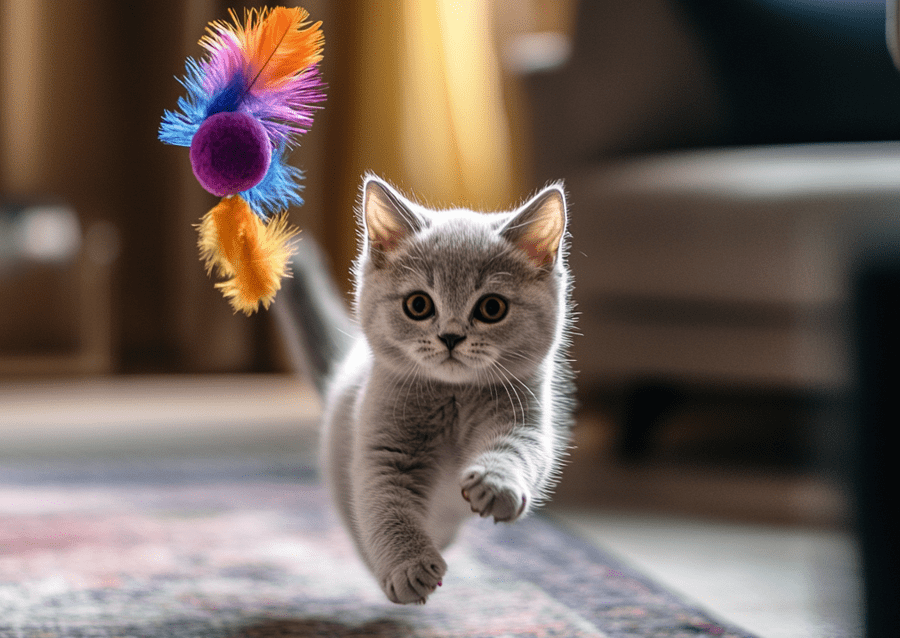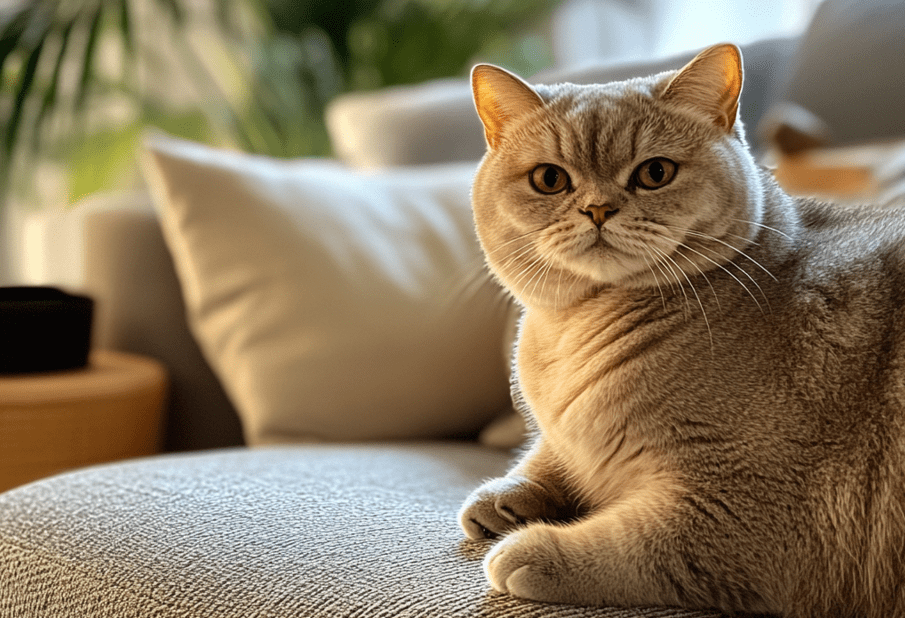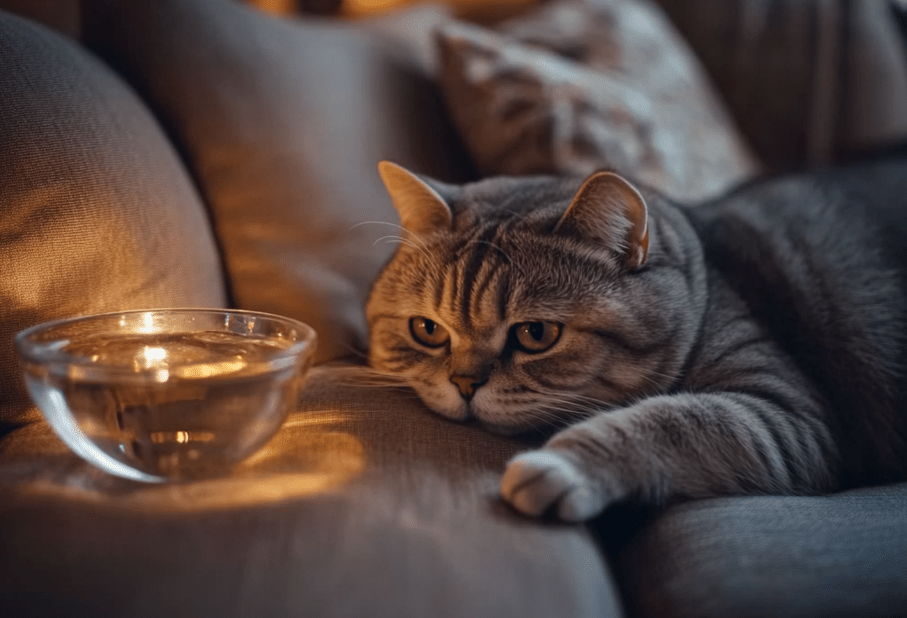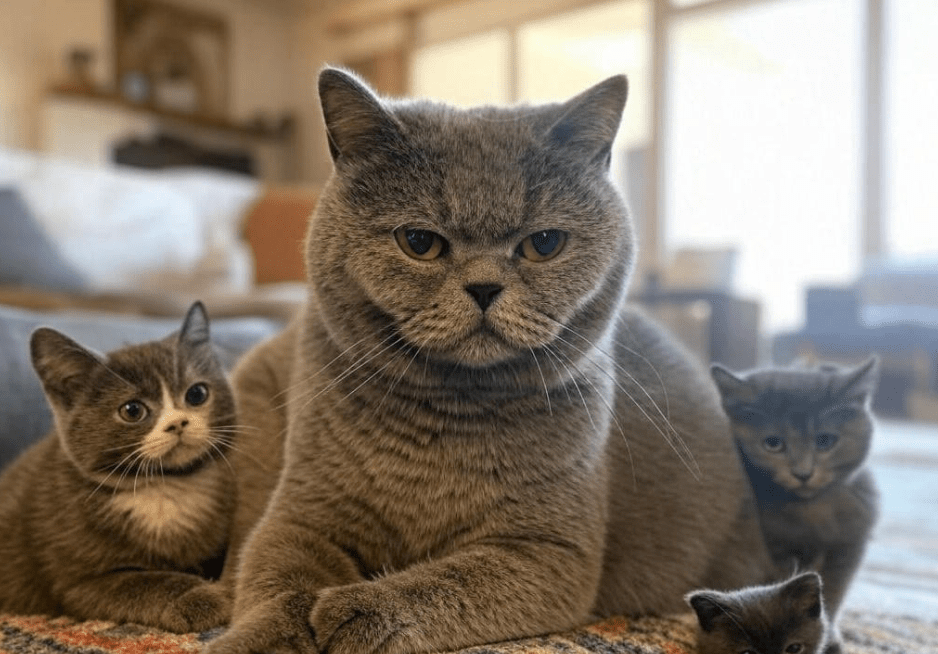
British Shorthair cats, with their plush coats and charming, teddy-bear-like faces, are beloved for their calm and affectionate nature. As a devoted owner, understanding the nuances of their health is crucial, and one often-overlooked aspect is blood type compatibility. Blood type compatibility in British Shorthairs is vital for situations like blood transfusions, breeding, and managing neonatal isoerythrolysis (NI), a potentially fatal condition in kittens. This comprehensive guide explores feline blood types, their significance for British Shorthairs, and actionable steps to ensure your cat’s health and safety, making it an essential resource for every owner.
Understanding Feline Blood Types
Cats, like humans, have distinct blood types determined by antigens on the surface of their red blood cells. The feline blood type system is simpler than the human ABO system but still critical for health management. The primary blood types in cats are:
Type A: The most common blood type in domestic cats, characterized by the presence of A antigens.
Type B: Less common, with B antigens on red blood cells.
Type AB: Extremely rare, featuring both A and B antigens.
Each blood type has specific implications for transfusions and breeding, particularly in British Shorthairs, where blood type distribution may differ from other breeds.
Blood Type Distribution in British Shorthairs
British Shorthairs predominantly have Type A blood, but a notable proportion may have Type B, especially in certain geographic regions or breeding lines. Studies suggest that 10-20% of British Shorthairs may be Type B, higher than in some other breeds like the Siamese, which are almost exclusively Type A. Type AB is exceedingly rare across all breeds, including British Shorthairs.
This distribution makes blood type compatibility a critical consideration for British Shorthair owners, particularly for breeders or those whose cats may require transfusions.
Why Blood Type Compatibility Matters
Blood type compatibility is essential in three key scenarios: blood transfusions, breeding, and preventing neonatal isoerythrolysis. Understanding these scenarios helps British Shorthair owners make informed decisions to protect their cats.
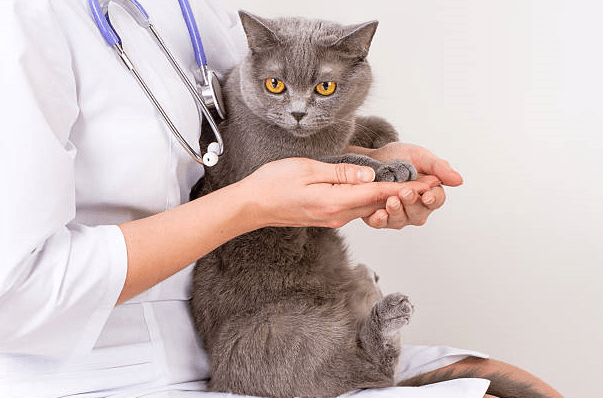
1. Blood Transfusions
In emergencies, such as severe anemia, trauma, or surgery, a British Shorthair may require a blood transfusion. Administering incompatible blood can lead to life-threatening reactions:
Transfusion Reactions: If a Type B cat receives Type A blood, the cat’s immune system may attack the donor blood, causing hemolysis (destruction of red blood cells), fever, or organ failure.
Type AB Cats: These cats can receive either Type A or Type B blood but require careful matching to avoid complications.
Knowing your British Shorthair’s blood type ensures that veterinarians can select a compatible donor, minimizing risks during transfusions.
2. Breeding and Neonatal Isoerythrolysis (NI)
Neonatal isoerythrolysis is a serious condition that occurs when a Type B queen (female cat) gives birth to Type A or Type AB kittens. The queen’s colostrum (first milk) contains antibodies against Type A antigens, which can destroy the kittens’ red blood cells, leading to severe anemia or death within days of birth.
Risk in British Shorthairs: Given the higher prevalence of Type B in British Shorthairs, breeders must test both the queen and sire to avoid incompatible matings.
Symptoms of NI: Kittens may show weakness, jaundice, or sudden death shortly after nursing.
Blood type testing before breeding can prevent this devastating condition, ensuring healthy litters.
3. Emergency Preparedness
In emergencies, such as accidents or sudden illness, knowing your British Shorthair’s blood type can expedite veterinary care. Preemptive blood typing allows veterinarians to source compatible blood quickly, improving outcomes in critical situations.
How to Determine Your British Shorthair’s Blood Type
Blood typing is a straightforward procedure that every British Shorthair owner should consider, especially for breeding cats or those with health concerns.
Veterinary Blood Typing Tests
In-Clinic Tests: Veterinarians use rapid blood typing kits, such as card tests or gel-based assays, to determine a cat’s blood type. These tests require a small blood sample and provide results within minutes.
Laboratory Testing: For confirmation or in complex cases, samples may be sent to a diagnostic lab for detailed analysis, including PCR-based tests.
Cost: Blood typing typically costs $50-$150, depending on the region and testing method.
Consult your veterinarian to schedule a blood typing test, ideally during a routine checkup.
When to Test
Before Breeding: Test both the queen and sire to prevent NI.
Kittens: Test kittens from Type B queens to identify at-risk individuals.
Pre-Surgery: Blood typing before major surgeries ensures compatibility in case a transfusion is needed.
New Cats: Test newly adopted British Shorthairs to establish their health baseline.
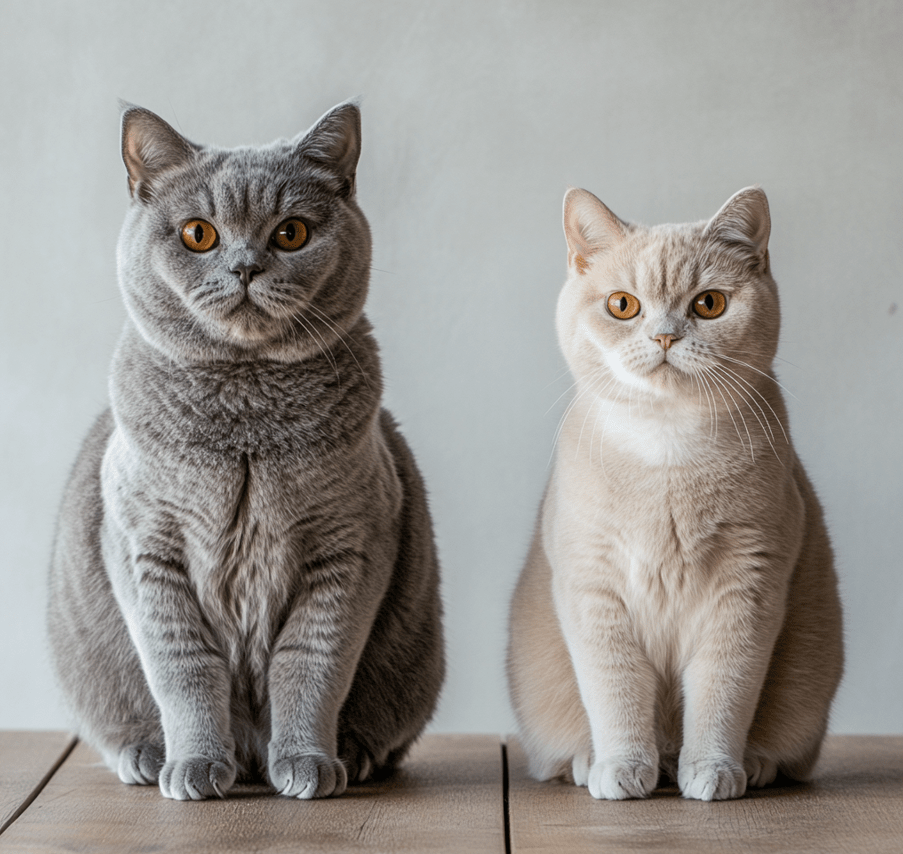
Proactive testing is a small investment that can prevent significant health risks.
Blood Type Compatibility in Breeding British Shorthairs
Breeding British Shorthairs requires careful consideration of blood type compatibility to avoid neonatal isoerythrolysis and ensure healthy kittens.
Safe Breeding Combinations
Type A Queen x Type A Sire: Safe, as all kittens will be Type A, with no risk of NI.
Type B Queen x Type B Sire: Safe, as all kittens will be Type B, avoiding antibody conflicts.
Type A Queen x Type B Sire: Safe, as kittens will be Type A or Type AB, and the queen’s colostrum lacks anti-B antibodies.
Type B Queen x Type A Sire: High risk, as Type A or Type AB kittens may develop NI due to the queen’s anti-A antibodies.
Preventing Neonatal Isoerythrolysis
To prevent NI, breeders should:
Test Blood Types: Confirm the blood types of both parents before mating.
Avoid Risky Pairings: Do not breed a Type B queen with a Type A or Type AB sire.
Monitor Kittens: If a risky mating occurs, prevent kittens from nursing the queen’s colostrum for the first 24-48 hours. Hand-feed with a safe milk replacer under veterinary guidance.
Genetic Screening: Work with reputable breeders who prioritize blood type testing to reduce the prevalence of Type B in breeding lines.
These steps ensure the health of British Shorthair litters and minimize the risk of NI.
Blood Transfusions and Compatibility
In cases where a British Shorthair requires a blood transfusion, compatibility is critical to prevent adverse reactions.
Transfusion Guidelines
Type A Cats: Can receive Type A blood safely. Type AB blood may be used in rare cases but is less common.
Type B Cats: Must receive Type B blood, as Type A blood will trigger a severe reaction.
Type AB Cats: Can receive either Type A or Type B blood, but Type AB is preferred if available.
Cross-Matching: Even with compatible blood types, cross-matching (testing donor and recipient blood for compatibility) is recommended to avoid minor antigen reactions.
Finding a Donor
Veterinary Blood Banks: Some veterinary hospitals maintain feline blood banks with typed blood.
Donor Cats: Healthy, typed cats (often from the same household or a donor program) can provide blood.
Emergency Protocols: In emergencies, veterinarians may use rapid typing kits to identify a suitable donor.
Knowing your British Shorthair’s blood type in advance streamlines this process, ensuring timely and safe transfusions.
Regional Variations in Blood Type Prevalence
Blood type distribution in British Shorthairs varies by region, influenced by breeding practices and genetic diversity.
Europe: Higher prevalence of Type B (15-20%) in British Shorthairs, particularly in the UK and Scandinavia.
North America: Type B is less common (10-15%), but still significant in certain lines.
Asia: Data is limited, but Type A predominates, with Type B appearing in specific pedigrees.
Owners and breeders should consult local veterinarians or breed registries to understand regional blood type trends and tailor their approach accordingly.
Health Conditions Related to Blood Types
While blood types themselves do not cause disease, they influence health outcomes in specific scenarios.
Anemia: Cats requiring transfusions due to anemia (e.g., from flea infestations or kidney disease) need compatible blood to avoid complications.
Kidney Disease: Common in older British Shorthairs, kidney disease may necessitate transfusions, making blood type knowledge critical.
Trauma or Surgery: Accidents or major surgeries may require blood, where compatibility ensures safe recovery.
Regular veterinary checkups and blood typing help manage these conditions effectively.
Practical Steps for British Shorthair Owners
To ensure your British Shorthair’s health regarding blood type compatibility, follow these actionable steps:
1. Schedule Blood Typing
Work with your veterinarian to test your cat’s blood type, especially if they are a breeding cat, a kitten, or at risk for health issues requiring transfusions.
2. Maintain Health Records
Keep a record of your cat’s blood type, along with other health information, in an easily accessible place. Share this with your veterinarian and any emergency clinics.
3. Choose Reputable Breeders
If purchasing a British Shorthair, select a breeder who tests for blood types and prioritizes health screening. Request documentation of the parents’ blood types.
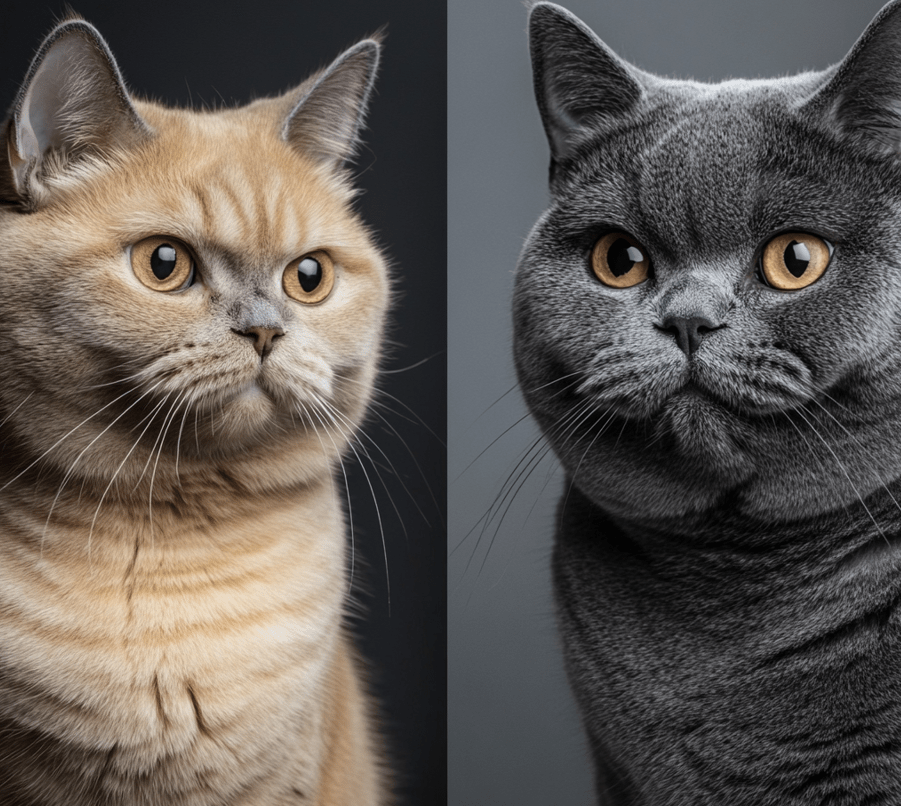
4. Prepare for Emergencies
Identify veterinary hospitals with blood banks or donor programs in your area. Knowing where to go in an emergency can save critical time.
5. Educate Yourself on Breeding
If you plan to breed your British Shorthair, study blood type compatibility and consult with experienced breeders or veterinarians to avoid NI risks.
6. Monitor Kitten Health
For breeders, observe newborn kittens for signs of NI, such as lethargy or jaundice, and act quickly if symptoms appear.
Common Myths About Feline Blood Types
Misconceptions about blood types can lead to confusion. Here are some myths debunked:
Myth: All British Shorthairs have Type A blood.
Fact: While Type A is most common, 10-20% of British Shorthairs may have Type B, requiring careful management.
Myth: Blood type doesn’t matter for non-breeding cats.
Fact: Blood type is critical for transfusions, which any cat may need in an emergency.
Myth: Type AB cats are common.
Fact: Type AB is extremely rare, making it unlikely but still worth testing for.
Myth: Blood typing is too expensive or unnecessary.
Fact: Blood typing is affordable and can prevent life-threatening complications.
Clearing up these myths empowers owners to make informed decisions.
The Role of Veterinary Care
Veterinarians are key partners in managing blood type compatibility for British Shorthairs.
Routine Testing: Include blood typing in annual or pre-breeding health checks.
Emergency Protocols: Ensure your vet has access to blood typing kits and donor blood.
Breeding Advice: Consult your vet for guidance on safe mating pairs and NI prevention.
Education: Ask your vet to explain your cat’s blood type and its implications for health and breeding.
Building a strong relationship with your veterinarian ensures comprehensive care for your British Shorthair.
Advances in Feline Blood Typing
Recent advancements have made blood typing more accessible and accurate:
Rapid Test Kits: Newer kits provide results in minutes with high accuracy, reducing costs and wait times.
Genetic Testing: DNA-based tests can identify blood type genes, offering a non-invasive option for kittens or breeding cats.
Blood Bank Networks: Veterinary blood banks are expanding, providing typed blood for emergencies.
These innovations make it easier for British Shorthair owners to prioritize blood type compatibility.
Choosing the Right Products and Services
When addressing blood type compatibility, select high-quality products and services:
Veterinary Clinics: Choose clinics with in-house blood typing capabilities and access to blood banks.
Breeding Registries: Work with organizations like the Cat Fanciers’ Association (CFA) or The International Cat Association (TICA), which promote health screening.
Health Records Apps: Use apps like PetDesk or VitusVet to store your cat’s blood type and medical history.
Investing in reliable resources supports your British Shorthair’s health and safety.
Common Mistakes to Avoid
Avoid these pitfalls when managing blood type compatibility:
Skipping Blood Typing: Failing to test your cat’s blood type can lead to complications during transfusions or breeding.
Ignoring Breeding Risks: Breeding without blood type knowledge increases the risk of NI.
Assuming All Vets Have Blood: Not all clinics stock typed blood, so plan ahead for emergencies.
Neglecting Kitten Monitoring: Breeders must watch for NI symptoms in at-risk litters.
Proactive planning prevents these errors and ensures your cat’s well-being.
Conclusion
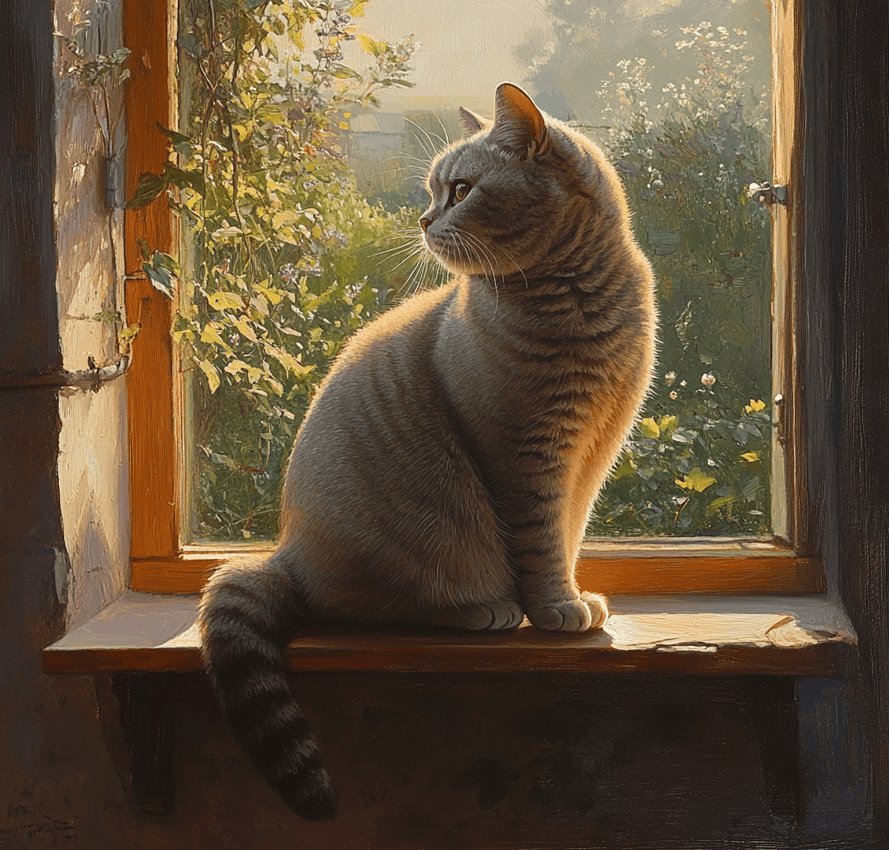
Understanding blood type compatibility is a vital aspect of caring for your British Shorthair cat. By knowing your cat’s blood type, you can ensure safe transfusions, prevent neonatal isoerythrolysis in breeding, and prepare for emergencies. Blood typing, combined with responsible breeding practices and regular veterinary care, empowers you to protect your British Shorthair’s health and longevity. Whether you’re a pet owner or a breeder, this knowledge is an essential tool for keeping your beloved feline companion healthy and happy.
For personalized guidance, consult your veterinarian to schedule blood typing and discuss your British Shorthair’s specific needs. With the right information and proactive care, you can provide the best possible life for your cherished cat.

